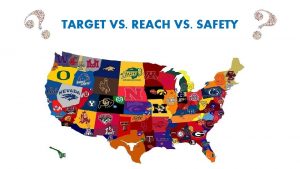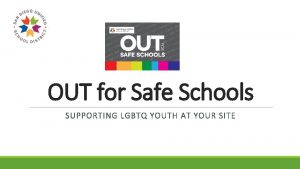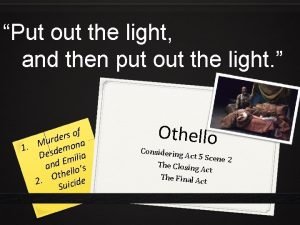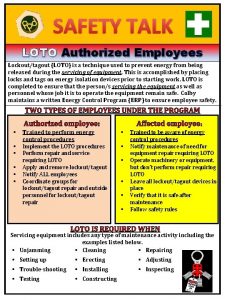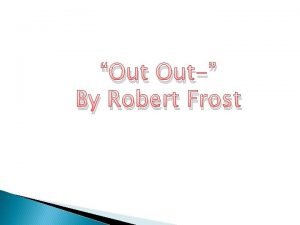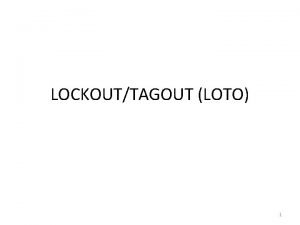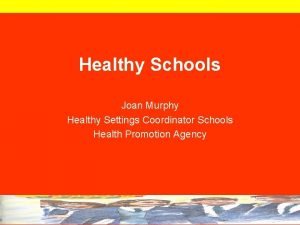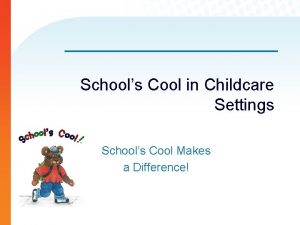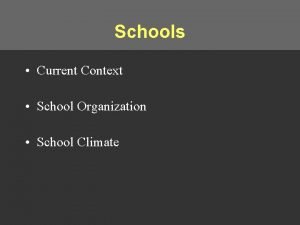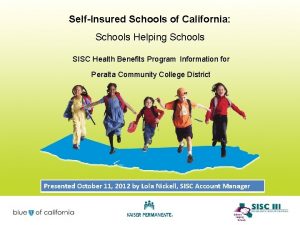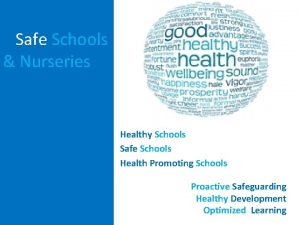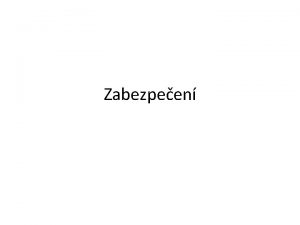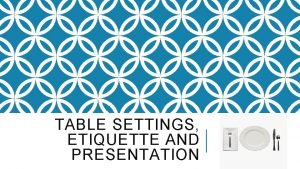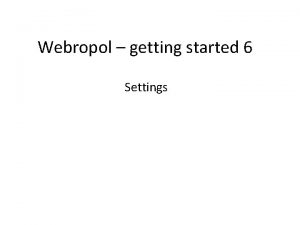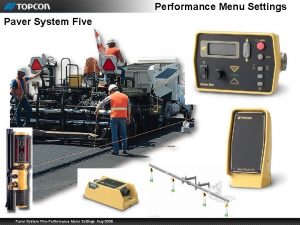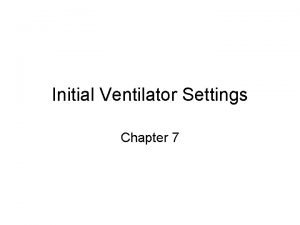Out of Schools Settings Out of School Settings













- Slides: 13

Out of Schools Settings


Out of School Settings An Out Of School Setting is any institution which provides tuition, training, instruction, or activities to children in England without their parents’ or carers’ supervision, and that is not a: • • school college 16 -19 academy provider caring for children under 8 years old, which is registered with Ofsted or a childminder agency


Framework will enable providers in OOSS to consider how their setting will: • Provide a suitable environment including health and safety, risk assessments, first aid and estate management • Consider safeguarding and child protection in accordance with 'Keeping Children Safe in Education 2018' and 'Working Together 2018’ in a sector specific format • Recruitment and suitability of staff including references, DBS and immigration status of staff • Governance, GDPR and Data Protection, complaints and whistle blowing • Financial management, declaring incomes and tax and charity governance

Guidance to support parents and carers Guidance for parents and carers which is intended to be an aide to help parents and carers make more informed and confident choices when choosing out-of- school settings for their children. It lists questions parents and carers may wish to ask a provider, such as whether staff have undertaken DBS checks, and examples of possible responses they should expect.

Questions and Answers • • • Have staff and volunteers undertaken DBS checks? How recent were the checks? Will any adults besides the instructor be present at the venue while my child is there? If so, will they be there on a regular basis? What training have staff had? May I have a copy of your child protection policy? Who is your designated safeguarding lead (DSL) and what training have they had? How recent was this training? My child has Special Educational Needs and / or a disability (SEND). What steps will you take to accommodate this? My child needs help with: using the toilet; changing; feeding; their medication, etc. How will these personal care needs be addressed? How are you securely storing the information you hold on my child? Who has access to it and are you giving it to anyone else? Is my child allowed to access the internet unsupervised? Do you have filtering and monitoring systems in place? What are they?

Certificate in Education; University of Birmingham Out of School Settings ‘tutors’ Pedagogy & Child Development Education Law & Premises Management Safeguarding and Protecting the Welfare of Children Special Educational Needs and Disabilities Equality Act 2010 UNCRC; Children’s Rights Options: Faith, music, sport Assessment: • Checklists • Reflective Journal • Assignment

United Nations Convention on the Rights of the Child • National and local discussions have often been critical of the term ‘Fundamental British Values’, citing a legacy of ‘colonialism’ and ‘empire’ so we needed to refocus the approach and found that the language of the United Nations Convention on the Rights of the Child gave us a framework through which a multiplicity of perspectives could co-exist. The UNCRC makes provision for dissenting voices by validating the right to faith, culture, language; rights which communities deemed as repressed by the Prevent Duty. • The Articles of the UNCRC have been invaluable in engaging children, parents, practitioners and communities in shared values which make provision for difference, but offer a common language; a ‘new norm’. It has helped us to shape discussions around taboo issues such as cultural and religious conservatism, values and gender inequality

ARTICLE 1 Definition of the child ARTICLE 8 Protection and preservation of identity ARTICLE 15 Freedom of association ARTICLE 22 Refugee children ARTICLE 29 Goals of education ARTICLE 36 Other forms of exploitation ARTICLE 2 nondiscrimination ARTICLE 9 Separation from parents ARTICLE 16 Right to privacy ARTICLE 23 Children with a disability ARTICLE 30 Children from minority groups ARTICLE 37 Inhumane treatment and detention ARTICLE 3 Best interests of the child ARTICLE 10 Family reunification ARTICLE 17 Access to information from the media ARTICLE 24 Health and health services ARTICLE 31 Leisure, play and culture ARTICLE 38 War and armed conflicts ARTICLE 4 Implementatio n of the Convention ARTICLE 11 Abduction and non-return ARTICLE 18 Parental responsibilities ARTICLE 25 Review of treatment in care ARTICLE 32 Child labour ARTICLE 39 Recovery from trauma and reintegration ARTICLE 5 Parental guidance ARTICLE 12 Respect for the views of the child ARTICLE 19 Protection from violence and neglect ARTICLE 26 Social security ARTICLE 33 Drug abuse ARTICLE 40 Juvenile justice ARTICLE 6 Life, survival and development ARTICLE 13 Freedom of expression ARTICLE 20 Children unable to live with their family ARTICLE 27 Adequate standard of living ARTICLE 34 Sexual exploitation ARTICLE 41 Respect for higher national standards ARTICLE 7 Birth registration, name, care ARTICLE 14 Freedom of thought, belief and religion ARTICLE 21 Adoption ARTICLE 28 Right to education ARTICLE 35 Abduction, sale and trafficking ARTICLE 42 Knowledge of Rights


The Plan! Engage with supplementary settings through a community development approach Improve safeguarding through dissemination of the Safeguarding Toolkit Extend existing partnerships with faith communities of all designations Parent Charter to ensure that parents understand safeguarding in supplementary Training for head teachers, safeguarding leads in schools and wider social care training on illegal cultural practices Curriculum resources that uphold children’s right to protection through the UNCRC Cert Ed (or equivalent) in partnership with the University of Birmingham Quality mark for settings Training and conference opportunities to raise awareness and therefore expectations of quality in this sector Develop a voluntary code of practice for the full range of out of school settings Advice note for those providing tutoring in residential settings Advisory Board

Links to Consultation Closing date 24 th February 2019 https: //consult. education. gov. uk/regulatoryframework-unit/out-of-school-settingsvoluntary-safeguarding-code/

